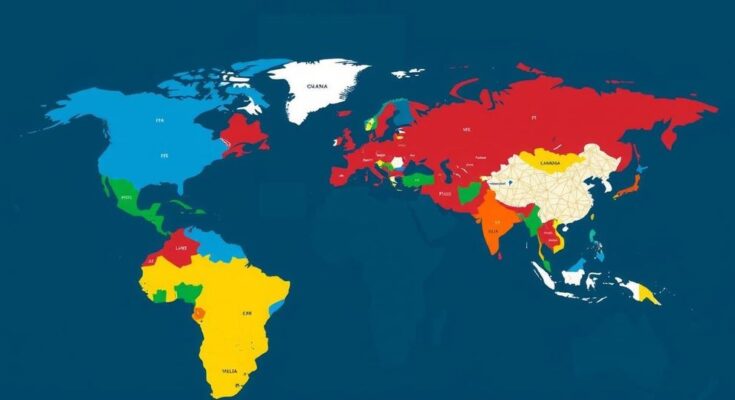During the Cop29 climate talks in Azerbaijan, wealthy nations agreed to boost climate finance to $300 billion annually to assist developing countries with climate change strategies. This decision followed backlash against a previously proposed $250 billion offer deemed insufficient by developing nations, emphasizing the urgent need for funding that meets their significant climate adaptation requirements.
During the recent Cop29 climate talks in Azerbaijan, affluent nations have pledged to elevate their annual climate finance commitment to $300 billion to assist developing countries in combating climate change. The discussions became intense as delegates from major economies, including China, the EU, the United States, and Australia, negotiated key contentious issues surrounding climate finance and the cessation of fossil fuel reliance. The summit, initially scheduled to conclude on Friday, extended into Saturday morning as negotiations intensified after backlash from developing nations over a $250 billion proposal, deemed insufficient to support their transition to sustainable economies.
In response, multiple affluent countries indicated readiness to enhance their offer to $300 billion, conditioned on corresponding adjustments to the draft agreement. The United Nations Secretary-General António Guterres actively engaged world leaders to facilitate this increase. However, skepticism persisted, particularly from nations such as Japan, Switzerland, and New Zealand, regarding the sufficiency of this amount. While the proposed $300 billion falls short of developing nations’ estimations, which require at least $1.3 trillion annually by 2035 for climate response, it still reflects an attempt to forge a more equitable financial structure.
Moreover, the discourse remains contentious, as growing apprehension among affluent nations is linked to potential political shifts that could alter their commitments in future negotiations. Critics from the developing world, including representatives from Brazil, have voiced their discontent, claiming wealthy nations aim to evade their responsibilities. They emphasized the necessity for substantial grants, as many developing nations currently face significant debt burdens.
Discussions at Cop29 also highlighted the importance of transitioning away from fossil fuels, a commitment established in the previous year’s talks, which some delegates reportedly seek to dilute. This ongoing discord underscores the urgency of establishing definitive climate finance frameworks that acknowledge the historical inequities of developing nations, marked by calls for financing levels as high as $5 trillion or $7 trillion annually based on the severity of climate impacts and the historical contributions of developed nations to greenhouse gas emissions.
The Cop29 climate talks represent a gathering of world leaders and climate negotiators aimed at addressing the global climate crisis. The discussions seek to enhance financial frameworks that guide the support provided by affluent nations to their developing counterparts, who face severe vulnerabilities due to climate change. As the impacts of climate change worsen, the need for robust and reliable financial commitments becomes increasingly critical. The controversies surrounding climate finance not only reflect the financial needs of developing countries but also highlight the political complexities that can impede progress in achieving international climate goals.
In conclusion, the recent commitment by wealthy nations to increase climate finance to $300 billion reflects a pivotal moment in the global climate discourse, albeit one that remains fraught with challenges. The ongoing negotiations illustrate the disparity between the financing offered and the actual needs articulated by developing nations. The discussions also hint at deeper political tensions, as nations express concern over future commitments amid changing political landscapes. It is apparent that climate finance remains a cornerstone issue that demands immediate and sustained attention to foster a global cooperative response to climate change.
Original Source: www.theguardian.com




